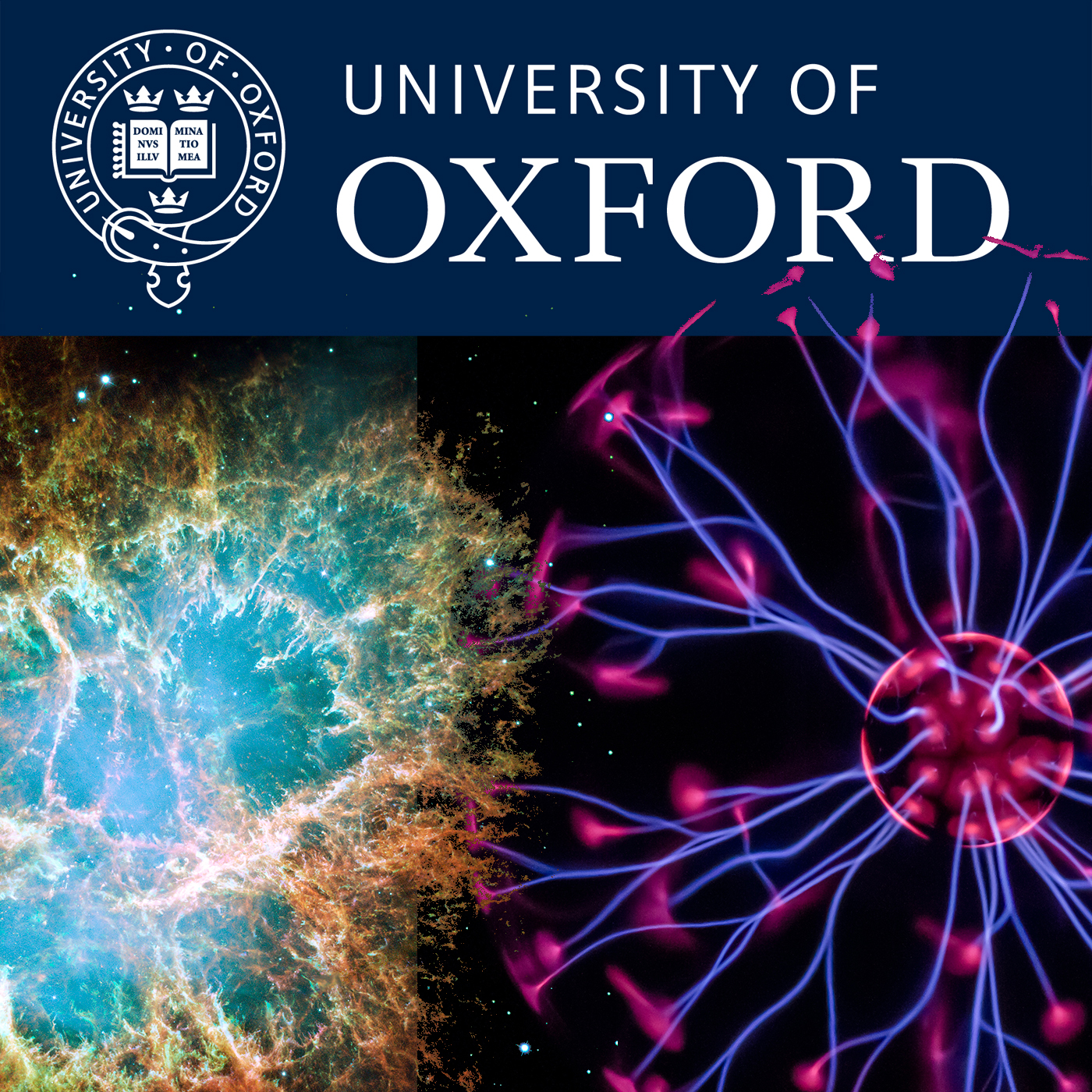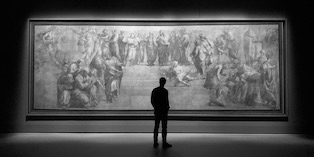 Twitter: @OxfordPhysics
Twitter: @OxfordPhysicsSite: www.physics.ox.ac.uk
15 episodes
2015 to 2023
Average episode: 40 minutes
Open in Apple Podcasts • RSS

 Twitter: @OxfordPhysics
Twitter: @OxfordPhysics
Site: www.physics.ox.ac.uk
15 episodes
2015 to 2023
Average episode: 40 minutes
Open in Apple Podcasts • RSS
Categories: Astronomy • Physics • Talk/Seminar Series
Podcaster's summary: Learn about quantum mechanics, black holes, dark matter, plasma, particle accelerators, the Large Hadron Collider and other key Theoretical Physics topics. The Rudolf Peierls Centre for Theoretical Physics holds morning sessions consisting of three talks, pitched to explain an area of our research to an audience familiar with physics at about second-year undergraduate level.
| Episodes |
| 2023-Mar-03 • 40 minutes The spaghettification of stars by supermassive black holes: understanding one of nature’s most extreme events The spaghettification of stars by supermassive black holes: understanding one of nature’s most extreme events - Andrew Mummery On a rare occasion an unfortunate star will be perturbed onto a near-radial orbit about the supermassive black hole in its galactic centre. Upon venturing too close to the black hole the star is destroyed, in its entirety, by the black hole’s gravitational tidal force, a process known as “spaghettification”. Some of the stellar debris subsequently accretes onto the black hole, power... |
| 2023-Mar-03 • 39 minutes Extreme value statistics and the theory of rare events Extreme value statistics and the theory of rare events - Francesco Mori Rare extreme events tend to play a major role in a wide range of contexts, from finance to climate. Hence, understanding their statistical properties is a relevant task, which opens the way to many applications. In this talk, I will first introduce extreme value statistics and how this theory allows to identify universal features of rare events. I will then present recent results on the extreme values of stochastic processes, including ... |
| 2023-Mar-03 • 43 minutes Inflation and the Very Early Universe Inflation and the Very Early Universe - Georges Obied The universe we observe seems to have come from surprisingly fine-tuned initial conditions. This observation is at the heart of two of the most important puzzles in cosmology, called the horizon and flatness problems. To explain these puzzles, cosmologists invoke a period of accelerated expansion in the early universe (called inflation). As a bonus inflation, when considered with quantum mechanics, produces fluctuations in the energy density that become ... |
| 2021-Jan-16 • 32 minutes Strings and Fields Will strings be the theory of everything?, presented by Prof Luis Fernando Alday. |
| 2021-Jan-16 • 36 minutes Classical and Quantum Black Holes Prof March-Russell explains our latest understanding of black holes, some of the most mysterious objects in the Universe. |
| 2021-Jan-16 • 33 minutes Why is Quantum Gravity so hard? A pressing question in our quest to understand the Universe is how to unify quantum mechanics and gravity, the very small and the very large. |
| 2016-Feb-11 • 39 minutes How computers have changed the way we do physics - Breaking through the quantum barrier The power of available computers has now grown exponentially for many decades. The ability to discover numerically the implications of equations and models has opened our eyes to previously hidden aspects of physics. Many exciting phenomena observed in condensed matter systems, such as superconductivity and the quantum Hall effect, emerge due to the quantum mechanical interplay of many electrons. The laws of quantum physics are governed by the Schrödinger equation, whose complexity grows exponentially with ... |
| 2016-Feb-11 • 37 minutes How computers have changed the way we do physics - Structure in complex systems The power of available computers has now grown exponentially for many decades. The ability to discover numerically the implications of equations and models has opened our eyes to previously hidden aspects of physics. In physics, "complex systems" are systems of many similar interacting parts, such as the interacting atoms that make up a solid or liquid, but also interacting organisms in an ecosystem, or interacting traders in the stock market. This lecture will discuss how recent advances in modeling and co... |
| 2016-Feb-11 • 52 minutes How computers have changed the way we do physics - Chaos and climate change The power of available computers has now grown exponentially for many decades. The ability to discover numerically the implications of equations and models has opened our eyes to previously hidden aspects of physics. In this lecture, Myles Allen addressed how computers have transformed our understanding of the role of chaos and exponential error growth in weather forecasting; and our understanding of how climate change is impacting regional weather. He showed how research in Oxford Physics, made possible by... |
| 2015-Sep-24 • 46 minutes Gravitational lensing: one of the sharpest tools in an astronomer's toolbox Members of the Rudolf Peierls Centre for Theoretical Physics hosted the eighth Saturday Morning of Theoretical Physics on 19 September 2015. Talk 3 by Professor James Binney. |
| 2015-Sep-24 • 45 minutes General Relativity: what is it & why Einstein conceived it thus Members of the Rudolf Peierls Centre for Theoretical Physics hosted the eighth Saturday Morning of Theoretical Physics on 19 September 2015. Talk 2 by Professor John Wheater. |
| 2015-Sep-24 • 41 minutes Cosmology from General Relativity Members of the Rudolf Peierls Centre for Theoretical Physics hosted the eighth Saturday Morning of Theoretical Physics on 19 September 2015. Talk 3 by Pedro Ferreira. |
| 2015-May-14 • 39 minutes Basics of Anyons and Nonabelian Aharanov-Bohm Effect Members of the Rudolf Peierls Centre for Theoretical Physics hosted the 7th morning of Theoretical Physics covering the idea of quantum computation and the strange behaviour of certain types of fundamental particle. |
| 2015-May-14 • 34 minutes Knots, World-lines, and Topological Quantum Computation Members of the Rudolf Peierls Centre for Theoretical Physics hosted the 7th morning of Theoretical Physics covering the idea of quantum computation and the strange behaviour of certain types of fundamental particle. |
| 2015-May-14 • 49 minutes Quantum Computing Members of the Rudolf Peierls Centre for Theoretical Physics hosted the 7th morning of Theoretical Physics covering the idea of quantum computation and the strange behaviour of certain types of fundamental particle. |